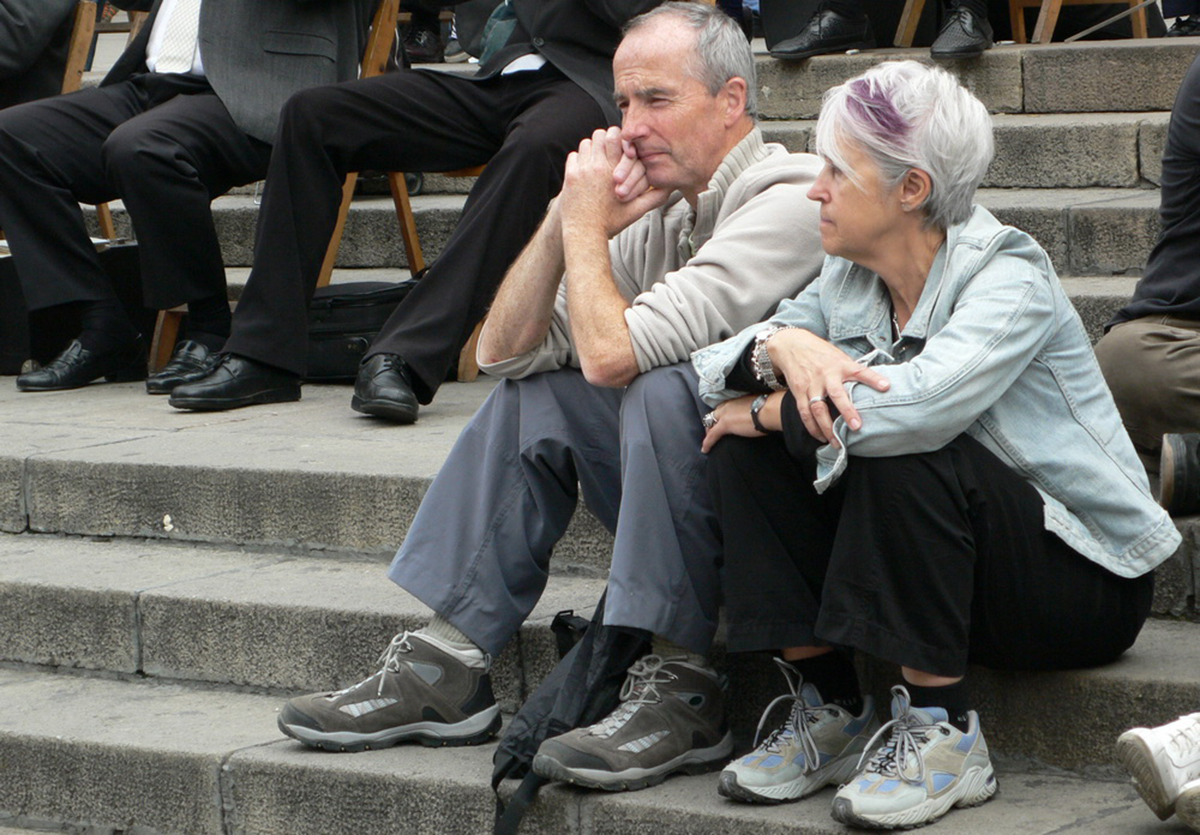Aging: Happens to everyone
Mark Twain said that wrinkles should merely indicate where smiles have been. Unfortunately, as some people would think, they don’t. Wrinkles, as well as detriment in vision, memory and in physical strength, among other abilities, are some of the changes that we notice as we grow old.

A similar aging process has even been described in bacteria. So, don’t feel bad about getting old and keep on reading to find out why and how we age.
What science says about us getting old
The process of aging has become one of the main focuses for researchers nowadays, basically because aging has been identified as a risk factor for the development of degenerative diseases such as Alzheimer’s and Parkinson’s disease.
But why do we age? When do we start aging? Why do our cells wear out? Well, even scientists are still trying to figure this out. Currently, there are two main theories that try to explain how aging is regulated in the human being.
We age because our genes say so
The first theory claims that our genes regulate the aging process. The switching on and off of genes controls our growth and development. This gene-controlled system allows our cells to turn into specialized brain cells, liver cells and skin cells, for example, at a certain embryonic stage. Later in life, it also stops growth by suppressing bone and muscle cells at a specific age and allows other types of cells, such as blood cells, to keep on replicating for as long as we live.
These theories support the idea of programmed changes that favor aging, including hormonal changes and a decline in the effectiveness of our immune system.
See Also: The Hayflick Limit: Why You Won't Live Forever
Do you remember that when you were a child you could go out in the rain with nothing else than a light sweater and not get sick? Well, it is proven that after puberty, our defense mechanisms start to decline in their response, which is the reason why if you go out and dance in the rain as an adult, the least you could expect is waking up the next day with a soared throat and a headache.
Because of this, as we grow old, the risk of developing certain diseases such as chronic neurodegenerative diseases and cancer, for instance, might increase.
Our Genes Don’t Determine How Long We Are Going To Live
The “programmed aging theory” has raised many questions and there are scientists that believe that our body is not genetically programmed to die. Dr. Tom Kirkwood, from the University of Newcastle, has made of the aging process his main research topic. He thinks that our body is actually programmed to survive, and not to stop functioning.

Everything passes, everything wears out, everything breaks
The second main theory that tries to explain aging is the one called “the damaged or error theory”.
The basic idea that this theory supports is that the repeated use of our body wears it out as time goes by, resulting in lost of functionality and the ability to replace damaged tissues.
Because our body is no longer able to substitute damaged or death cells our organs eventually stop functioning correctly, making us prone to suffer from illnesses and leading us eventually to death.
But aside from constant use, other factors also trigger the beginning of the end.
I’m sure you have heard about antioxidants. They are advertised in almost everything we eat and use, including cosmetic products that attempt to delay aging. Well, this is because oxidative damage caused by free radicals present in the environment, the food and even in our body, can severely damage our cells, including our DNA. Accumulation of free radicals is more common to occur during adulthood, because as we grow old, natural cell systems in charge of counteracting their effects loose effectiveness.
Mitochondrial damage and its subsequent dysfunction are believed to be central players in the aging process and various age-associated diseases. The mitochondria, often referred to as the "powerhouses of the cell," are essential for energy production in the form of adenosine triphosphate (ATP).
Unlike nuclear DNA, mitochondrial DNA lacks some of the protective mechanisms, making it more susceptible to damage, especially from reactive oxygen species (ROS). Damage to mitochondrial DNA can impair the synthesis of essential components of the electron transport chain.
Some toxins and drugs can induce mitochondrial dysfunction either directly by interfering with mitochondrial enzymes or indirectly by increasing oxidative stress.
Telomere shortening and aging
Our chromosomes are basically DNA libraries. Picture them as a slinkies, where the cord is not made of metal but of DNA material. At the ends of each chromosome there is a region known as telomere.
This region is there to protect DNA from loosing important pieces after the DNA is replicated during cell division, because the copying system is not 100% effective as it reaches the ends of the chromosomes.
See Also: Live To Be 100: What The Macarthur Foundation Thinks Will Make Life Expectancy Of 100 Years Possible
Telomere shortening has been related not only to aging, but also to cancer. Cancer cells may have a mechanism to prevent telomeres from getting shorter and making them immortal.
Aging is a complex mechanism but scientists don’t give up on its study. The reason? It is definitely an interesting process to study, but also, it can solve many questions regarding age related diseases, cancer and who knows, even the possibility of one day discovering the secret of eternal youth.
- JIN, K. 2010. Modern Biological Theories of Aging. Aging Dis, 1, 72-74.
- Photo courtesy of X posid by Public domain pictures : www.publicdomainpictures.net/view-image.php?image=50637&picture=stone-throwing-04
- Photo courtesy of siulesoj by FreeImages : www.freeimages.com/photo/653499


Your thoughts on this